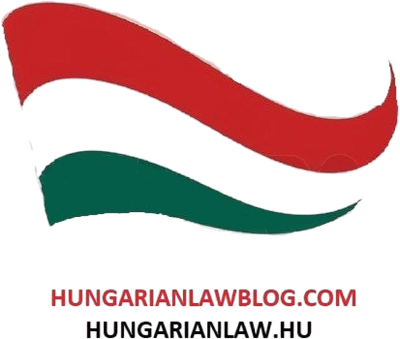Much debate has focused on the legal classification of the "purchase security" used by Hungarian real estate agents and whether it is legal for real estate agents to handle money in this way. In the following I will try to answer these questions.
Since the Hungarian legal system does not regulate this type of "purchase security", it is necessary to examine its characteristics and to identify the known legal relationships on the basis of these characteristics.
How does a purchase security work?
One typical practice is that, when a potential buyer wishes to make an offer to buy a property, the real estate agent will in many cases inform the buyer that the offer can only be made to the seller if the buyer, in order to prove the seriousness of his intention, hands over a certain amount of money, typically hundreds of thousands or even millions of forints, in cash.
There is then no agreement between the seller and the buyer as to the purchase security and the real estate agent is not an agent of the property owner in the context of the handling of the money. The manner in which the purchase security is to be disposed of is not usually set out in a written contract, but is accompanied by the explanation that its fate depends on the buyer ultimately purchasing the property.
If the seller accepts the buyer's offer, the real estate agent will hand it over to the seller at the time of the contract and the parties agree that it forms part of the purchase price. In some cases, the estate agent returns it to the buyer at the time of the sale and the buyer pays it to the seller. If the seller rejects the purchase offer, the estate agent returns this amount to the buyer.
The interesting case is if the buyer withdraws after the seller has accepted the purchase offer, the buyer's deposit is not returned by the estate agent,
it is either retained as a commission (which is incomprehensible because there is no agency or other legal relationship between the buyer and the real estate agent, so the real estate agent cannot be entitled to any amount from the buyer),
possibly a part of it to the seller (this is also incomprehensible because there is no agreement between the buyer and the seller which determines the amount of the purchase security or gives the seller the right to receive it, especially as this amount is not a deposit or a contingency). This amount is certainly not a deposit or a contingency, as there is no agreement between the seller and the buyer to pay it.
A purchase security is a sum of money held by the real estate agent without a valid contract to this effect, and paid or taken over by one or other party, subject to the failure or fulfilment of certain conditions, which are not usually set out in writing. It may also be recorded that he carries out this activity regularly in the course of his business, with a view to obtaining a profit or income, and that it is therefore commercial conduct on his part.
On the basis of these criteria, we cannot identify any legal title in the legal relationships that have been established which would enable the buyer to retain it or the amount to be transferred from the buyer to the property agent or retained by the property owner by virtue of any title whatsoever.
If we are considering whether the amount might have to be repaid to the buyer or transferred to the seller, we can apply the rules of the escrow agreement governed by Act V of 2013 on the Civil Code (Civil Code Act) to the assessment of the purchase security.
The Civil Code. 6:360 of the Civil Code, the depositary is obliged to keep the movable property specified in the contract and to return it upon termination of the contract, and to pay a fee to the depositor. Ptk. 6:364 (2) of the Civil Code, there is also a deposit whereby the depositor is obliged to release the deposited object to a third person specified in the contract upon the occurrence of the conditions specified in the contract or upon termination of the contract.
The commentary to the Civil Code points out that further detailed rules on the deposit of money are laid down in other specific legislation.
Pursuant to Article 2 (1) (c) of Act CCXXXVII of 2013 on Credit Institutions and Financial Undertakings (Act on Credit Institutions and Financial Undertakings), the Act does not apply to the management of cash deposits if its business is regulated by law.
Since there is no statutory provision for the commercial management of funds by real estate brokers (as opposed to notaries, courts and lawyers), the Hpt. applies to them, i.e. it is on the basis of this Act that it can be assessed whether real estate brokers are entitled to manage funds on a commercial basis.
Pursuant to Article 3(1)(l) of the Hpt, the commercial provision of deposit services in forint, foreign currency or foreign exchange is a financial service.
Pursuant to Article 6(1)(79) of the Hpt, a deposit service is defined as the deposit and management of funds on behalf of a client in a separate deposit account, with or without interest, under conditions laid down by law.
A cash deposit service is a special case of a civil law (movable) deposit regulated by the Civil Code, where a financial institution deposits and manages funds on behalf of a client in a separate deposit account, with or without interest, in accordance with the terms and conditions laid down by law and the deposit contract concluded for this purpose.
The management of the escrow account is also necessary to qualify as a deposit service under the Hpt.
We have to analyse the report on the commercial nature of the activity, as this is the basis for the qualification of the activity as a financial service subject to authorisation pursuant to Article 3(1) of the Hpt.
Pursuant to Article 6(1)(116) of the Hpt, the following elements must be examined in relation to the commercial character of the activity:
-for consideration, for the purpose of acquiring property,
-for the purpose of concluding transactions not specifically defined in advance,
-it is carried out on a regular basis.
Commerciality is when the service is provided for a fee or other economic benefit. In my view, commerciality can also be established if the activity is carried out in order to increase the efficiency, profitability, level of income and return on the main activity carried out in a commercial manner. In the above case, if the real estate agents are entitled to a share of the "commission on the purchase", this condition is fulfilled.
Pursuant to Article 7(2) of the Hpt, only financial institutions may provide financial services, unless otherwise provided by law.
It should be stressed that in cases of regulated commercial deposit of funds (by notaries, courts and lawyers), the legislation contains a number of provisions which provide for the depositing of funds and protect the financial interests of the depositor. Thus, regulated trusts are subject to liability insurance, chamber supervision, a deposit insurance fund and a compulsory registration process for state asset liability, ensuring that the depositor is covered for the payment of the deposit in case of error, mistake or possible misuse of the funds. However, these guarantees are absent in cases of non-statutory management of the funds.
An analysis of the above legislation indicates, in my opinion, that real estate agents are not authorised to handle funds on a commercial basis in the absence of a specific legal authorisation. In view of this, I interpret the legal provisions to mean that real estate agents may not, in the course of their business, accept deposits of money known as "purchase security" or manage such deposits.


